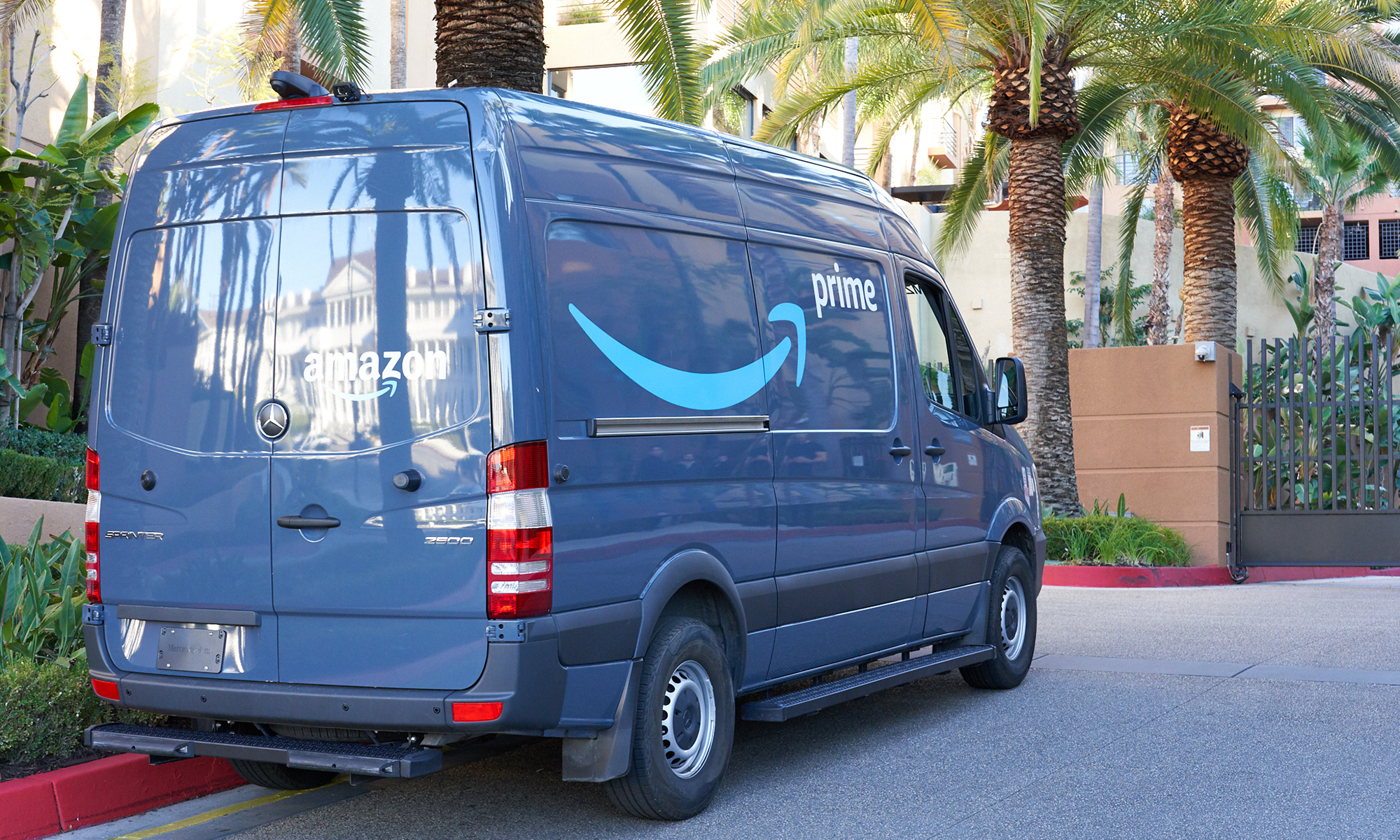Time sure does fly. This coming month will mark the 21st anniversary since Amazon.com (AMZN +0.44%) filed its S-1 prospectus with the Securities and Exchange Commission (SEC) in anticipation of going public at an "assumed initial offering price of $13." Mind you, this $13 is a pre-split price that would be equal to about $1.08 today, taking into account Amazon's three stock splits prior to the dot-com bubble bursting.
The Amazon of then looked nothing like the Amazon of now. In its first full year of operation (1995), Amazon generated $511,000 in sales, and lost $303,000 in the process. In 2017, it generated close to $178 billion in sales to go along with more than $3 billion in net income. Of course, don't let this net income figure fool you. The company could be incredibly profitable if it chose to be. Instead, it reinvests a huge percentage of its operating cash flow into fulfillment, new technology, and services.

Image source: Amazon.
Amazon has also moved well beyond just being an online retailer. Last year it acquired Whole Foods Market, giving it a physical presence, and possibly allowing Amazon the ability to enter the pharmacy business. It also has an exceptionally high-margin, fast-growing web services business that's generally responsible for most of its profits.
Here's how much Jeff Bezos would be worth if he never sold any stock
But if there's been one constant for Amazon over the years, it's CEO Jeff Bezos. As of Feb. 26, Bezos' net worth had skyrocketed to more than $124 billion, according to Forbes, making him the richest person on the planet. Despite taking home a rather pedestrian annual salary -- less than $1.7 million, including an $81,840 salary in 2016 -- it's Bezos' common stock in Amazon that continues to pay off.

Amazon CEO Jeff Bezos. Image source: Amazon.
As of an SEC filing on Nov. 14, 2017, Bezos owned 78,893,280 shares of Amazon stock, which as of Feb. 26 works out to more than $120 billion in value. But, believe it or not, Amazon's chief could be worth even more had he never sold a single share of stock.
According to the S-1 filed in March 1997, Bezos owned 9,885,000 shares of Amazon stock. The prospectus notes that after the common stock offering associated with its initial public offering (IPO), Bezos' ownership of all outstanding shares would be down to 43.1%. It was 48.3% prior to the IPO. However, on June 2, 1998; Jan. 5, 1999; and Sept. 2, 1999; Amazon's stock split 2-for-1, 3-for-1, and 2-for-1, respectively. That would have pushed Bezos' original 9,885,000 shares in Amazon to 118,620,000 shares, assuming no stock sales. Based on Amazon's closing price of $1,521.95 per share on Feb. 26, Bezos' net worth would be almost $181 billion! That would be more than if you combined his two closest peers, Bill Gates and Warren Buffett, who have net worths of $91.9 billion and $86.9 billion, respectively.
Bezos' growing wealth should make investors very happy
Of course, following years of stock-based compensation and even a convertible debt offering back in 2002, Bezos' ownership in his company isn't what it used to be. Gone are the days when he owned 43% of outstanding stock. As of today, Bezos owns a little bit more than 16% of all outstanding shares.
Still, this is no negligible amount by any means, and it's a reason for Amazon shareholders to cheer. Though Bezos is unlikely to be perturbed by the daily fluctuations in Amazon's share price, he has a clear vested interest to do right by shareholders, since he's the largest one by far. Many of today's publicly traded companies lack a significant executive ownership presence, which can arguably make it difficult for management to act in the best interests of shareholders at times. However, with more than $120 billion currently on the line, Bezos is certain to examine all growth avenues for Amazon.

Image source: Getty Images.
It'll also be intriguing to see what Bezos will do with his vast wealth. In total, he's donated about $65 million to the Fed Hutchison Cancer Research Center in Seattle; given $15 million to his and his wife's alma mater, Princeton; donated $10 million to Seattle's Museum of History and Industry; and recently set aside $33 million to fund scholarships for recipients of the Deferred Action for Childhood Arrivals program. But this represents just a small fraction of Bezos' wealth. What he ultimately plans to do with it remains a mystery.
Though Amazon remains as dynamic as ever, Bezos continues to be the steady rock that investors lean on.






